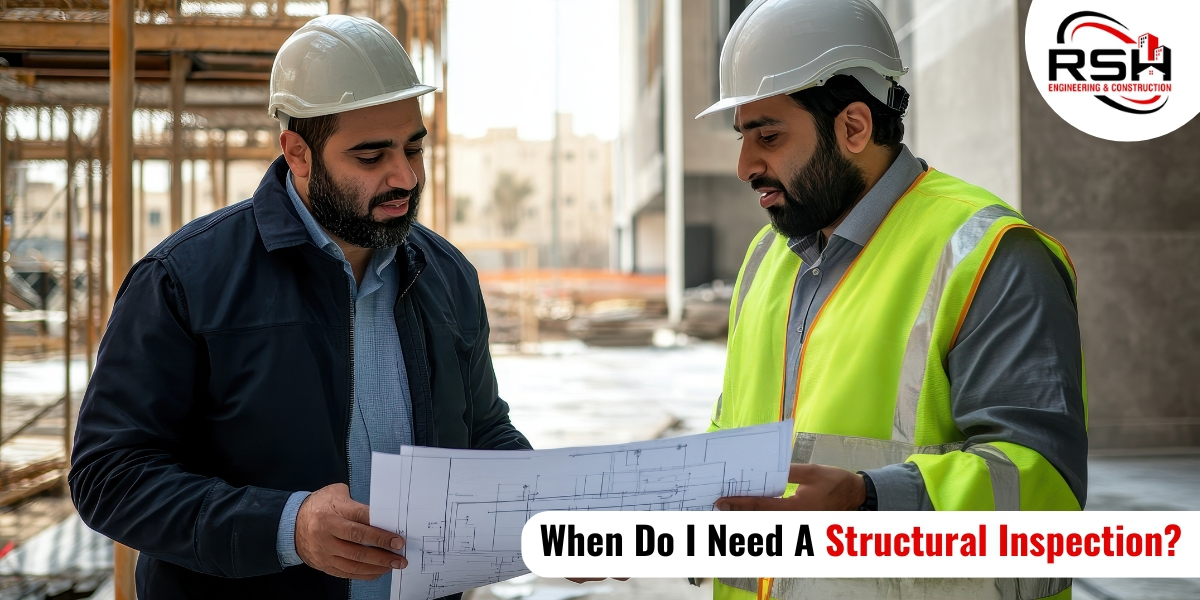Owning a home is an important investment, and it is more needed to sound at top priority. This structural integrity is necessary to maintain your home’s safety. Well! Knowledge about structural inspection is required if you’re planning to buy or sell a new home. Therefore, understanding this submission will cover everything you need to know about structural inspections and how they help keep your property from damage. Let’s read!
Structural Inspection: In Clear Words
A structural inspection is a detailed examination of your property’s structure, which includes the foundation, walls, roof, and supporting systems. However, if you’re hiring a well-licensed structural inspector, perform activities to identify issues affecting the building’s strength and stability.
Do You Need a Structural Inspection?
There are certain scenes where a home structural inspection becomes necessary.
Here are the critical situations when they are needed:
1. Before Buying or Selling a Home
● Home Inspection Contingency:
A home structural inspection can easily recognize hidden issues if you buy or sell a home. Many buyers make out contingent deals upon passing the inspection, making sure there are no structural problems that could lead to costly repairs.
● Home Inspection Report:
The systematic report generated by the home inspector can close the final sale price or negotiation terms, making it an essential step before finalizing the deal.
2. Visible Structural Damage
If you find any of the following signs of structural damage, it is vital to arrange a structural inspection right away immediately:
- Cracks in the property’s walls or ceilings
- Sagging or uneven floors
- Doors or windows that don’t close properly
- Bowing or leaning walls
These visible signs could indicate more profound issues with the home’s foundation, roof, or supporting structures.
3. After Natural Disasters
Natural disasters like earthquakes, floods, or severe storms can significantly damage a home’s structure. Even if your home appears undamaged, an expert structural engineer inspection can reveal hidden problems caused by the shifting of the earth or water damage to the foundation.
4. House Foundation Inspection
A house foundation inspection should be conducted if there are noticeable issues with the stability of your foundation.
Common foundation problems include:
- Uneven settling
- Foundation cracks
- Gaps between floors and walls
Foundation issues can cause extensive structural damage if not addressed early. Therefore, looking beforehand is better for the property.
5. Routine Maintenance
Even if you haven’t experienced structural damage or disasters, having periodic structural inspections as part of your routine home maintenance is not a good idea. A professional structural inspector can catch minor issues before they develop into more serious, costly problems.
What Does a Structural Inspection Include?
A structural inspection checklist typically involves a thorough review of several areas of the home:
- Foundation: Checking for cracks, shifts, and uneven settling.
- Walls: Examining for bowing, cracks, or moisture damage.
- Roof Structure: Looking for signs of sagging, leaks, or structural wear.
- Floors: Assessing the levelness and stability of flooring.
- Support Beams: Inspect the integrity of beams in basements, crawl spaces, or attics.
The inspector may sometimes recommend additional evaluations, such as a moisture test if water damage is suspected.
Why Hire a Structural Engineer?
A structural engineer inspection offers a more detailed analysis than a regular home inspector can provide. Structural engineers are trained to diagnose specific structural problems and recommend precise solutions.
In some instances where significant structural issues are found, a structural engineer inspection is often required to confirm the findings of the home inspection report.
How a Structural Inspection is Beneficial for a Property?
Here are some of the benefits of having a structural inspection done by a qualified professional:
● Prevents Major Repairs:
Early detection of structural issues helps prevent expensive repairs down the road.
● Give Peace of Mind:
Knowing that your home’s structural elements are secure provides peace for homeowners and prospective buyers.
● Increase Property Value:
Checking that your home is in good structural condition can boost its market value, making it easier to sell.
● Insurance Purposes:
Some insurance companies require a structural inspection checklist before offering coverage, especially in areas prone to natural disasters.
What to Do After a Structural Inspection?
Once the structural inspection report is completed, it is essential to review the findings carefully. The report will usually include recommendations for repairs or further inspections if issues are found.
Some steps to consider:
● Address Issues Promptly:
If any structural problems are identified, prioritize repairs immediately to prevent them from worsening.
● Consult with a Structural Engineer:
If significant repairs are required, hiring a structural engineer to oversee the process and ensure the repairs are done correctly is advisable.
How Often Should You Get a Structural Inspection?
While there is no set rule for how often you should get a home structural inspection. Follow a few general guidelines:
- Every 5 to 10 years for routine maintenance.
- Immediately after any visible structural damage or natural disaster.
- Before buying or selling a home.
Conclusion
A structural inspection is essential for maintaining the safety and stability of your home. If you’re deciding to buy, sell, or just maintain your property, it is important to know when to schedule a home structural inspection to prevent costly repairs down the road. By being proactive and addressing structural issues early, you can ensure the long-term security of your home and protect your investment.
Hire qualified professionals for structural damage inspection, like adapting RSH Engineering & Construction to get accurate results and detailed solutions.





